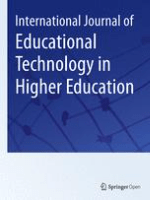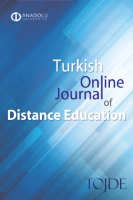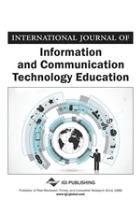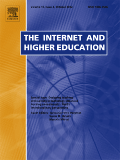
Research and Practice in Technology Enhanced Learning
Scope & Guideline
Advancing educational frontiers through technology.
Introduction
Aims and Scopes
- Integration of Technology in Learning:
The journal emphasizes the effective integration of technology in educational practices, exploring how digital tools can enhance learning outcomes, engagement, and motivation among students. - Learning Analytics and Data-Driven Insights:
Research on learning analytics is a critical focus, investigating how data can be used to understand student behaviors, improve teaching strategies, and personalize learning experiences. - Innovative Pedagogical Approaches:
The journal publishes studies on various pedagogical frameworks and approaches, including blended learning, collaborative learning, and gamification, aimed at enhancing educational practices. - AI and Emerging Technologies in Education:
A significant area of interest is the application of artificial intelligence and other emerging technologies in educational settings, assessing their impact on teaching efficiency and student learning. - Critical Examination of Educational Practices:
The journal encourages critical discussions on existing educational practices, including the challenges and barriers faced in implementing technology-enhanced learning. - Focus on Diverse Learners:
Research addressing the needs of diverse learner populations, including those with disabilities or from underrepresented backgrounds, is a priority, ensuring equitable access to technology-enhanced education.
Trending and Emerging
- AI and Machine Learning in Education:
Research exploring the integration of AI tools, such as chatbots and automated grading systems, is on the rise, highlighting the potential for these technologies to support educators and enhance student learning. - Gamification and Game-Based Learning:
There is a growing trend towards gamification and the use of game-based learning strategies, indicating a recognition of the motivational benefits and engagement that games can bring to educational contexts. - Digital Literacy and Self-Directed Learning:
Increasing attention is being paid to digital literacy and the development of self-directed learning skills, reflecting the need for learners to navigate and utilize digital resources effectively. - Collaborative and Remote Learning Practices:
The impact of collaborative learning and remote teaching practices has gained prominence, particularly in light of global shifts towards online education, necessitating research on effective strategies in these environments. - Diversity and Inclusion in Technology Use:
Emerging research is focusing on the implications of technology for diverse learners, emphasizing the need for inclusive practices that cater to the varied needs of all students.
Declining or Waning
- Traditional Classroom Practices:
There seems to be a declining focus on conventional classroom practices without technology integration, as the journal increasingly emphasizes innovative and technology-enhanced methods. - Static Assessments and Evaluations:
The use of static assessments, which do not leverage technology for real-time feedback or adaptation, is becoming less prevalent, reflecting a shift towards more dynamic and interactive assessment practices. - General Theoretical Frameworks without Practical Application:
Papers that discuss theoretical frameworks without practical implications or applications in technology-enhanced learning contexts are appearing less frequently, indicating a preference for research with actionable insights. - Research on Non-Digital Educational Tools:
As the focus on technology grows, less research is being published on non-digital educational tools and methods, which may limit the breadth of educational practices considered.
Similar Journals

Journal of Statistics and Data Science Education
Innovating Education in Statistics and Data Science.Journal of Statistics and Data Science Education, published by ROUTLEDGE JOURNALS, TAYLOR & FRANCIS LTD, stands at the forefront of educational research within the fields of statistics and data science. Since its inception in 2021, this Open Access journal has successfully carved out a significant niche, achieving impressive rankings across multiple disciplines, including Q2 status in Education, Management Science and Operations Research, as well as Statistics and Probability for 2023. With a Scopus ranking that places it in the 81st percentile for Statistics and Probability and the 73rd percentile in Education, the journal serves as a vital resource for researchers, educators, and students alike. Addressing the intrinsic relationship between statistical education and analytical practice, the journal aims to disseminate innovative research, effective pedagogical strategies, and insights pertinent to both academic and applied settings. By offering valuable content that bridges theoretical concepts and practical applications, the Journal of Statistics and Data Science Education plays a pivotal role in enhancing statistical literacy and fostering a data-informed educational environment.

International Journal of Educational Technology in Higher Education
Exploring the nexus of technology and higher education.The International Journal of Educational Technology in Higher Education, published by Springer, stands as a pivotal platform for the dissemination of innovative research and findings in the field of educational technology. Since its inception in 2016, this open-access journal has been dedicated to enhancing the intersection of technology and education, providing scholars and practitioners with cutting-edge insights that shape contemporary educational practices. With a robust ISSN of 2365-9440, the journal has garnered impressive accolades, ranking in the top quartile (Q1) in both Computer Science Applications and Education disciplines as of 2023. Furthermore, it holds an esteemed position within the Scopus rankings, occupying rank #6 out of 1543 in Social Sciences Education, and #20 out of 817 in Computer Science Applications, highlighting its influential reach and scholarly impact. The journal especially focuses on how emerging technologies are transforming higher education, fostering a collaborative approach amongst researchers, educators, and professionals. By making its content openly accessible, it aims to bridge knowledge gaps and support the advancement of effective educational practices worldwide.

Smart Learning Environments
Exploring the future of educational innovation.Smart Learning Environments, published by Springer Heidelberg, is a leading open-access journal dedicated to advancing the field of educational technology and intelligent learning systems. Since its inception in 2014, this journal has established itself as a vital resource for researchers and practitioners, showcasing innovative interdisciplinary approaches that enhance learning experiences using smart technologies. With a notable impact factor and recognition in the top quartiles (Q1) of both Computer Science Applications and Education, it ranks within the top 2% of journals in the Social Sciences – Education category and the top 7% in Computer Science, according to Scopus. The journal's scope encompasses empirical studies, theoretical papers, and reviews, making it an essential platform for disseminating cutting-edge research. Researchers, educators, and technology professionals are encouraged to engage with this premier outlet, which not only facilitates access to high-quality research but also promotes collaboration across academic and professional spheres.

International Journal of Education and Information Technologies
Empowering Education through Innovative TechnologiesWelcome to the International Journal of Education and Information Technologies, a leading academic platform published by NORTH ATLANTIC UNIV UNION-NAUN. With an emphasis on the integration of education and information technology, this journal aims to foster innovative research and discussions that enhance pedagogical practices and technological advancements in educational contexts. Although currently an open access journal, it provides unrestricted access to emerging studies that are crucial for educators, researchers, and professionals aiming to stay at the forefront of education technology. While specific metrics such as H-index and Scopus ranks are yet to be defined, its ISSN 2074-1316 signifies its credibility and commitment to quality scholarship. This journal serves as a vital resource for those passionate about bridging the gap between technology and education, encouraging impactful research that shapes the future of learning environments.

Contemporary Educational Technology
Transforming Teaching with Cutting-Edge TechContemporary Educational Technology is a premier journal published by BASTAS PUBL LTD - UK, specializing in the dynamic intersection of educational practices and technological advancements. With an E-ISSN of 1309-517X, this journal serves as a vital resource for researchers, educators, and professionals keen to explore innovative solutions and methodologies in education. Ranked in the Q2 category for both Education and Management of Technology and Innovation in 2023, Contemporary Educational Technology boasts impressive Scopus ranks, standing at #187 out of 1543 in the Social Sciences Education field, reflecting its influence and contribution to contemporary research. Through its open-access approach, this journal facilitates the dissemination of knowledge, making cutting-edge research readily available to a global audience. By examining developments from 2018 through 2024, it aims to critically analyze and promote the integration of technology in educational contexts, thereby fostering improved learning outcomes and innovative teaching practices.

Turkish Online Journal of Distance Education
Fostering Global Dialogue on Educational Accessibility.Turkish Online Journal of Distance Education, a distinguished publication from ANADOLU UNIVERSITY, serves as a vital resource in the field of distance education, contributing significantly to the ongoing discourse since its inception in 2000. With an impressive impact factor that reflects its standing within the academic community, this open access journal provides an influential platform for researchers, educators, and practitioners to disseminate innovative findings and educational strategies. Ranked in the Q2 category within the education sector according to the 2023 quartile rankings, and boasting a commendable position of #423 out of 1543 in Scopus' Social Sciences Education rankings, the journal places itself firmly within the 72nd percentile of its cohort. Spanning from 2004 to 2024, the journal's commitment to advancing scholarship in distance education is reflected not only in its comprehensive articles but also in its responsive engagement with contemporary educational challenges. Positioned in Eskişehir, Turkey, this journal aims to elevate discussions surrounding online learning and contributes to the global dialogue on education accessibility and innovation.

International Journal of Information and Communication Technology Education
Fostering collaboration in the realm of ICT education.International Journal of Information and Communication Technology Education (ISSN: 1550-1876, E-ISSN: 1550-1337), published by IGI Global, stands at the forefront of educational research, focusing on innovative uses of information and communication technologies in the educational landscape. With an impressive impact factor and consistently high rankings—the journal is positioned in the Q3 category for both Computer Science Applications and Education in the 2023 evaluations—this journal serves as a vital platform for scholarly contributions that aim to advance teaching methodologies and enhance learning experiences. Spanning from 2005 to 2024, it explores diverse topics in e-learning and technology-enhanced education, making it an essential resource for researchers, professionals, and students passionate about the intersection of technology and pedagogy. Though specifically not an open-access journal, the invaluable insights it offers foster knowledge dissemination and innovation in the field. Located in the United States, at 701 E Chocolate Ave, Hershey, PA, the journal remains committed to fostering a collaborative and transformative approach to learning in today's digitally-driven society.

JOURNAL OF FURTHER AND HIGHER EDUCATION
Exploring New Frontiers in Higher LearningJournal of Further and Higher Education, published by Routledge Journals, Taylor & Francis Ltd, stands as a prominent platform in the field of education, with a distinguished focus on further and higher education studies. With an ISSN of 0309-877X and E-ISSN of 1469-9486, this journal has been contributing invaluable insights since its inception in 1977. The journal boasts a remarkable Q1 ranking in its category for 2023, placing it in the top tier of educational research, underscored by its 83rd percentile ranking among Scopus Ranks in Social Sciences - Education. Researchers and practitioners alike are encouraged to submit their work, as the journal aims to foster innovative discussions and disseminate high-quality scholarly articles that address contemporary challenges in further and higher education. With its commitment to academic excellence, Journal of Further and Higher Education plays a crucial role in shaping policy and practice in the educational landscape, ensuring that the voices of educators and learners are heard and valued.

Internet and Higher Education
Advancing Knowledge at the Intersection of Technology and EducationWelcome to Internet and Higher Education, a premier journal published by Elsevier Science Inc, focusing on the dynamic intersection of technology and education. Established in 1998, this journal provides a platform for innovative research and critical discussions in the fields of Computer Networks and Communications, Computer Science Applications, and E-learning, consistently ranked in the Q1 quartile across multiple categories in 2023. With an impressive Scopus ranking placing it in the top 1% of Social Sciences and Computer Science categories, Internet and Higher Education aims to foster interdisciplinary collaboration and advance our understanding of digital learning environments. The journal invites contributions that explore the impact of the internet on higher education, offering tangible insights for educators, administrators, and policymakers alike. Stay updated on the latest findings and trends that are shaping the future of education through technology.

Journal of Asia TEFL
Bridging Cultures Through Language EducationWelcome to the Journal of Asia TEFL, a leading peer-reviewed platform dedicated to exploring the intersections of English language education, linguistics, and the dynamic educational landscapes of Asian contexts. Published by ASIA TEFL in South Korea, this journal has emerged as a pivotal resource for academia since its inception in 2004, with consistently expanding influence reflected in its Scopus rankings, including a notable 76th percentile in Linguistics and Language. With a focus on the evolving methodologies and pedagogical innovations in English language teaching, the journal aims to foster scholarly discussions that enhance teaching practices and policy-making in a globalized world. Although it currently operates without open access, its rigor and relevance in categories such as Education and Linguistics ensure that it remains a valuable asset for researchers, educators, and students seeking to advance their knowledge and practice within this vital field of study.